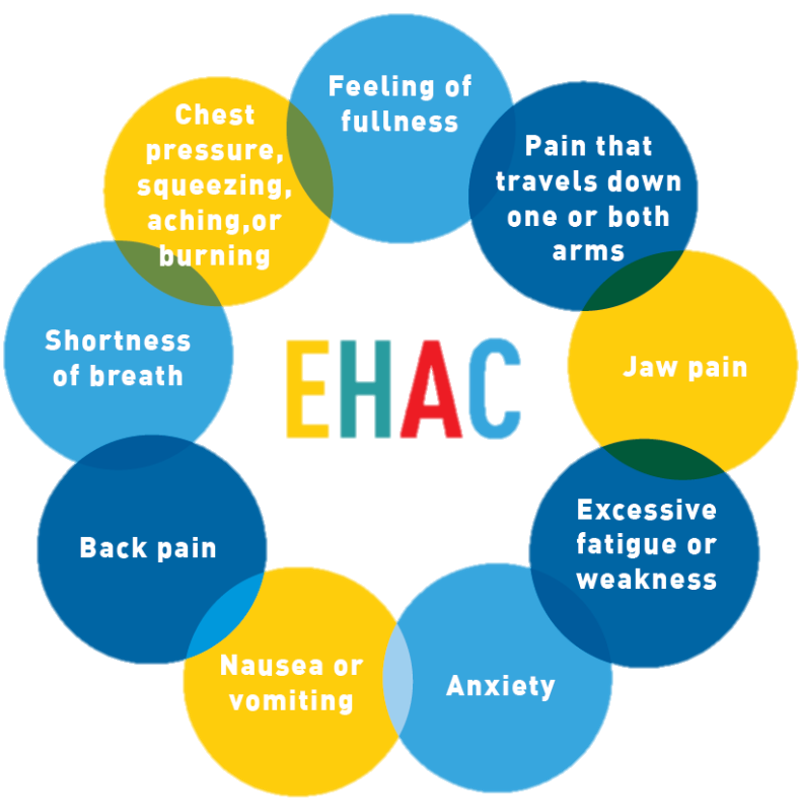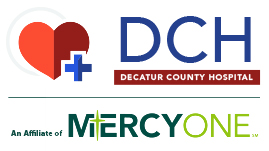EARLY HEART ATTACK CARE (EHAC)
During our strategic planning process for 2021-2022, DCH identified cardiac care as a point of focus. One element to increasing our ability to treat cardiac conditions is seeking a Chest Pain Center Accreditation from the American College of Cardiology. DCH will be the ONLY Critical Access Hospital in Iowa, and only the 4th hospital of any kind in Iowa to receive this designation.
Part of this certification includes educating our community on recognizing the early signs of a heart attack. Every year, approximately 805,000 Americans have a heart attack. Heart attacks don’t typically look like what we see in the movies or on television. They can present with mild symptoms up to two weeks prior to a major event. This is the window of opportunity to prevent death and minimize heart damage.
Some common heart attack symptoms that may start before a major attack include:
- Chest discomfort
- Chest pressure
- Chest ache
- Chest burning
- Chest fullness
In addition, there are some common symptoms that might not always seem related to the heart. These include:
- Weakness
- Sweating
- Nausea
- Dizziness
These mild symptoms may indicate the onset of a heart attack. They may come and go for hours or days before the chest pain becomes severe. Early symptoms are called prodromal and can be likened to the prodromal symptoms of a cold. When treated early, prevention can take place to avert sudden death and cardiac damage. Early recognition and response saves lives.
If you recognize any of these symptoms in someone, it is important to encourage them to seek treatment and diagnosis to confirm the cause. Seeking early treatment at the start of these symptoms is the best way to recognize a major cardiac event before it happens.
Throughout the next year while we seek our initial certification, DCH employees will be visiting various community meetings and organizations to provide training. If you are interested in receiving training on how to recognize the early signs of a heart attack, contact Shannon Erb, Chief HR and Marketing Officer, at 641-446-2345 or serb@d-c-h.org.
View our EHAC training PowerPoint presentation for adults.
View our EHAC training PowerPoint presentation for children and students (coming soon).

| Are you interested in determining your heart risk? Use this online tool to calculate your heart risk by answering simple questions about your health. This tool use the ASCVD algorithm published in the 2013 ACC/AHA Guideline on the Assessment of Cardiovascular Risk. This is a tool created by an entity outside of Decatur County Hospital. |

